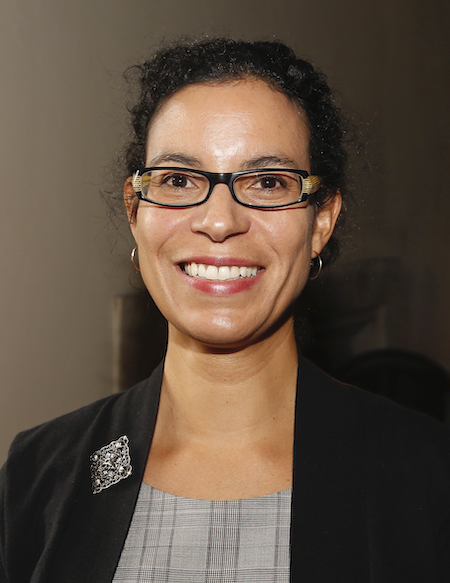FSU French professor awarded international fellowship

A Florida State University faculty member with the Department of Modern Languages and Linguistics at the College of Arts and Sciences has been named a recipient of a competitive fellowship from the Collegium de Lyon in France.
French professor Aimée Boutin was selected by the collegium for her innovative research project on the impact of the railway on women’s artistic expression in 19th-century France. The fellowship will allow Boutin to travel abroad to Lyon for a semester in the spring of 2021 and work alongside internationally-renowned researchers, teacher and scholars.
“I am honored to have been selected for a fellowship at the Collegium de Lyon, one of four French Institutes for Advanced Study,” Boutin said.
The Collegium de Lyon, founded in 2006, is an Institute for Advanced Studies within the Université de Lyon, and a member of the French and European IAS networks. The Collegium de Lyon operates with the two main principles of an IAS in mind: cultivating both a global approach and an active interdisciplinary approach to research.
The collegium’s fellowships allow researchers to focus on cutting-edge scientific research projects by providing five to 10-month stays in Lyon, the capital of France’s Auvergne-Rhône-Alpes region, and no more than 20 fellows are named per academic year.
“The prestigious Collegium de Lyon selects its fellows from among the highest echelons of international scholars,” said Reinier Leushuis, chair of the Department of Modern Languages and Linguistics. “To be awarded this fellowship is a true testimony to the excellence as well as to the national and international scope of Dr. Boutin's cutting-edge research agenda in her area of expertise.”
Boutin specializes in the study of 19th-century French poetry, women writers, cultural history, gender studies, art history and the city in literature. She joined the FSU faculty in 1998 after receiving her Ph.D. from Cornell University and her B.A. from Carleton University in Ottawa, Canada.
Her research at the intersection of social mobility studies, gender, and literary writing in 19th-century France makes Boutin the perfect choice for the fellowship, and she will fit in seamlessly among the collaborative community of scholars, Leushuis said.
Researchers from several interdisciplinary humanities labs, including the Institute for the History of Representations and Ideas in the Modern Era and the group Triangle. Action, Discourses, Economic and Political Thought, will be among Boutin’s collaborators.
“Thanks to the co-sponsorship of these two research units, I will be able to develop my project on the impact of the railway on women’s artistic expression in 19th-century France. I have a long-standing interest in urban mobility and its relationship to being modern, so this project allows me to focus on the railway’s impact on gendered identities in transit.”
The historical background of Lyon is remarkably befitting, lending itself perfectly to the topic of her research project. Lyon was home to the country’s first freight railway and has significance as a 19th-century industrial center.
Beyond the railway, the fellowship opens the door for Boutin to explore new areas of study with experts in complementary fields.
“The fellowship in Lyon will also be a unique opportunity to expand my network and expertise in sound studies,” Boutin said. “I will be part of a working group on the history of senses and sonic heritage, collaborating with sensory studies researchers such as the soundscape archeologist Mylène Pardoen.”
The fellowship is not only an honor for Boutin, but for the whole modern languages and linguistics department, which counts interdisciplinary scholarship and teaching among its core values.
“Our department houses scholars and teachers with a wide variety of areas of expertise in literary, linguistic and cultural studies,” Leushuis said. “Dr. Boutin's experience at the Collegium de Lyon will be highly valuable to further strengthen the cross-disciplinary spirit among colleagues for the benefit of our students.”
